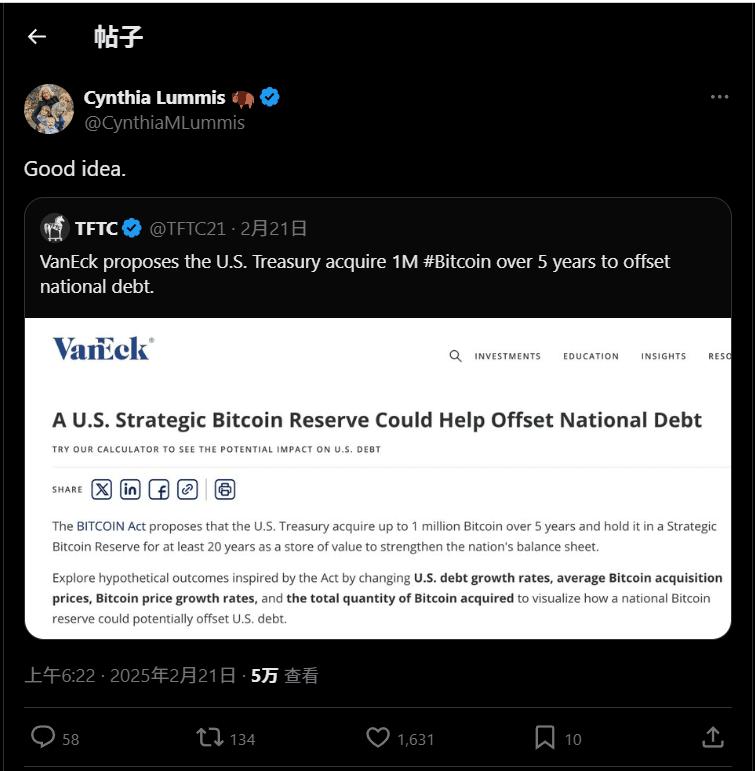VanEck has a very forward-looking prediction! The analysis suggests that if the United States can reserve 1 million Bitcoins by 2049, it will reduce the national debt by 21 trillion US dollars!
In addition, if the price of Bitcoin increases at a compound annual growth rate of 25%, the value of each Bitcoin will soar to US$21 million by 2049, and the total value of Bitcoin will account for approximately 18% of the total US debt.
VanEck's analysis and estimates of Bitcoin reserves
Matthew Sigel, head of digital asset research at VanEck, pointed out in his latest report that if the US government follows the development path of the (Bitcoin Act) and accumulates 1 million BTC by 2049, these Bitcoin reserves will be expected to eliminate approximately $21 trillion in national debt.

The report also predicts that the price of Bitcoin will grow at an annual rate of 25%, rising from the current $100,000 per coin to $21 million over the next 24 years, with 1 million BTC valued at $21 trillion. The country's national debt is expected to increase from the current $36 trillion to $116 trillion by 2049, at an annual growth rate of 5%.
In simple terms, it is expected that by 2029, the total value of Bitcoin reserves held by the United States will account for approximately 18% of the total national debt of the United States in that same year.
Addressing the potential of national debt and financial exploration in various countries
This idea coincides with the Bitcoin bill proposed by Senator Cynthia Lummis. Senator Lummis stated on X that this is a good idea. She has been advocating for the establishment of a U.S. Bitcoin reserve, believing that this solution can effectively address the $36 trillion national debt issue and enhance the global status of the U.S. dollar.

Moreover, Lummis also believes that establishing the concept of Bitcoin reserves will correct past financial mistakes and alleviate the economic pressure on the younger generation. However, the legislation to promote the establishment of reserves has yet to be reviewed by the Senate or House of Representatives. In other words, there is still a long way to go to achieve this goal.

However, this proposal is not universally welcomed. Former BitMEX CEO Arthur Hayes criticized that this strategy is unrealistic and only serves political interests, rather than ensuring financial stability.
It is worth noting that the concept of Bitcoin reserves is gaining increasing attention globally, with governments in places like Venezuela, Switzerland, and Hong Kong actively exploring its application potential. In the future, whether Bitcoin can truly become a national reserve asset still needs time to verify.
Do you think Bitcoin reserves can become an effective tool to solve the national debt problem, or do you believe this is just an unrealistic notion? See you in the comments!


